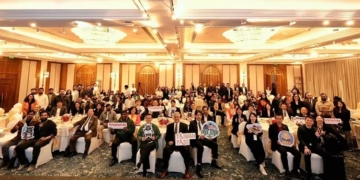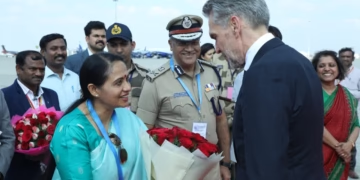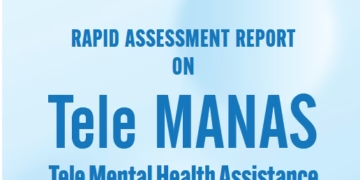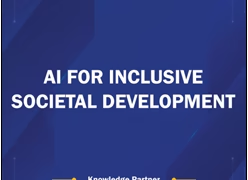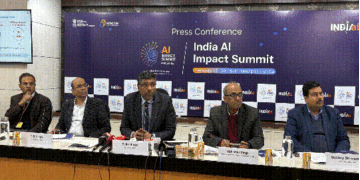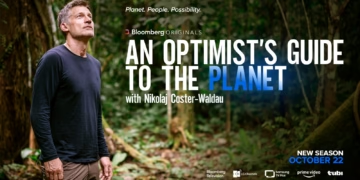Dubai, UAE, 30 September 2025:
Today, the world is witnessing a delicate phase closely linked to the ability of countries and societies to confront accelerating climate and economic challenges. With rising temperatures and increasing environmental pressures, the transition to a green economy has become a strategic necessity,driven by collective responsibility to ensure a safe and sustainable future for generations to come.
In this context, the World Green Economy Summit (WGES), organised under the patronage of HH Sheikh Mohammed bin Rashid Al Maktoum, Vice President and Prime Minister of the UAE and Ruler of Dubai, stands out as one of the most important global platforms that brings together decision-makers, thought leaders and technology pioneers to accelerate climate action and translate global ambitions into practical programmes with tangible impact.
Thanks to Dubai’s position as a global centre for innovation and sustainability, the summit has become one of
the most prominent events specialising in green economy on the international agenda and a vital tool to advance
co-operation between the public and private sectors, directing investments towards green solutions that
support economic growth and sustainable development.
“In line with the vision and directives of the wise leadership, Dubai continues its mission to build a more
sustainable future through the World Green Economy Summit, which has become a prestigious international
platform that brings together decision-makers, experts and innovators from around the world to exchange
views and launch pioneering initiatives and partnerships. Since its inception, the summit has contributed to
developing practical solutions that have advanced the green transition regionally and globally, consolidating the
UAE’s position as a beacon of sustainability and a hub for constructive dialogue and joint action. The 11th
edition of the summit will address integrated aspects that reflect the inclusiveness of the green economy and
enhance Dubai’s position as a global bridge linking climate ambitions with economic opportunities, as well as a
role model for transforming challenges into opportunities for growth and prosperity,” said HE Saeed
Mohammed Al Tayer, Vice Chairman of the Dubai Supreme Council of Energy, MD and CEO of DEWA and
Chairman of WGEO.
The 11th edition of the summit will be held on 1-2 October 2025 at the Dubai World Trade Centre under the
theme ‘Innovating for Impact: Accelerating the Future of the Green Economy’. Organised by the Dubai Supreme
Council of Energy, Dubai Electricity and Water Authority (DEWA) and the World Green Economy Organization
(WGEO), the summit reflects Dubai’s role as a leading global platform for hosting major international events
focused on sustainability and climate action.
This year’s theme embodies the urgent need for practical and innovative solutions capable of making a tangible
difference in accelerating the transition to a low-carbon economy. The summit’s agenda covers seven
interconnected themes that represent the fundamental pillars of building a greener and more resilient future.
Through these themes, the summit continues to act as a comprehensive platform linking scientific knowledge
with practical experience, and combining global strategic vision with national commitments.
This year’s summit sessions revolve around the following main pillars:
1. Technology and Innovation
Innovation is a key driver of the green economy, and this pillar places it at the forefront of discussions.
It will review the role of artificial intelligence (AI), the Internet of Things and advanced digital solutions
in enhancing sustainability and climate resilience. Sessions will address how to use these technologies
to improve the efficiency of energy and water networks, enhance renewable energy integration, develop
predictive analytics to reduce environmental risks and monitor carbon emissions with greater accuracy.
The pillar will also highlight innovation in energy storage and public-private co-operation in accelerating
the development of new green technologies. By reviewing successful projects and experiences based on
AI, this theme demonstrates how technology can evolve from a supporting tool into a critical lever for
achieving long-term sustainability.
2. Clean and Renewable Energy Technologies
This pillar explores innovative solutions to meet growing demand sustainably, focusing on the role of
renewable energy in ensuring reliable supplies around the clock and the feasibility of accelerating the
establishment of an economy based on green hydrogen as a clean future fuel. It will also examine the
importance of securing essential minerals for renewable energy production from sustainable sources,
and the development of advanced energy storage technologies that ensure network flexibility and
stability. Together, these perspectives present an integrated vision of how to build an energy system
capable of balancing economic growth with carbon emission reduction, in line with global net-zero
trends.
3. Policy and Regulation
The transition to a green economy requires a flexible legislative framework capable of keeping pace with
global changes. This theme focuses on shifts in climate policies and their impact on national and regional
economies, particularly in balancing priorities such as energy security, industrial policy and global
competitiveness. Sessions will explore how to align policies to ensure sustainable investments in
renewable energy, even in the absence of clear regulatory frameworks, while examining the expansion
of global carbon markets and the opportunities they create for trade and industry. The pillar will also
highlight the pivotal role of COP in advancing international climate agreements, and the importance of
private sector engagement in shaping new regulatory frameworks. These discussions provide a solid
basis for assessing the future of climate policies as a driver of green economic growth and a balance
between environmental and economic interests.
4. Finance
This pillar highlights the challenges of expanding renewable energy use, alongside financial solutions
that ensure sustained green growth, such as sustainable financing instruments and voluntary carbon
markets. Sessions will review strategies for mobilising private sector investment and aligning it with
international climate commitments, as well as the role of global financial institutions and development
funds in bridging investment gaps. Case studies will showcase how financing barriers can be turned into
opportunities. Through these perspectives, finance is positioned as a vital enabler that accelerates the
transition to a more resilient and efficient global economy, while enhancing countries’ ability to achieve
net zero in the long term.
5. Climate Equity
Climate equity represents a fundamental human dimension of the green economy, as sustainability
cannot be separated from the responsibility of ensuring equitable access to resources and opportunities
for all societies. This theme addresses the unequal effects of climate change, with vulnerable countries
and communities bearing the greatest burden of environmental crises such as droughts, floods, water
scarcity and food insecurity. Discussions will cover innovative solutions that address this dimension,
including AI-powered agriculture, solar energy in farming and advanced water management
technologies to support the most vulnerable communities. The pillar also highlights the importance of
international co-operation and solidarity between developed and developing countries to ensure a just
and equitable energy transition. This theme reinforces the idea that addressing climate change is not
only about technical solutions but also about embedding the values of justice and equality to safeguard
the rights of current and future generations.
6. Climate Adaptation and Resilience
This pillar examines practical strategies for addressing loss and damage caused by extreme climate
events, and for developing nature-based solutions such as restoring ecosystems, expanding green
spaces and protecting coastlines. It will also review the importance of early warning systems in risk
reduction, and the role of scientific innovation in building societies capable of withstanding crises.
Special attention will be given to ensuring fairness in adaptation, through affordable energy access and
protection of the most vulnerable groups, in a way that balances economic development with
environmental protection. The summit will highlight how international co-operation and knowledge-
sharing can enhance global capacity to confront climate change and build a more resilient and stable
future.
7. Youth in Climate Action
Young people are a driving force behind major transformations in sustainability and climate action, and
this pillar places them at the heart of the summit’s agenda. Sessions will highlight the growing role of
younger generations in pioneering innovative solutions through technology, entrepreneurship and
voluntary initiatives, showcasing their ability to turn ideas into transformative projects that support the
green transition. The theme will also discuss the rise of youth-led conscious and sustainable
investments, and the importance of equipping them with the skills and knowledge needed to participate
effectively in shaping climate policies. This pillar reflects the summit’s commitment to empowering
youths as key partners in building a sustainable future and bridging today’s action with tomorrow’s
aspirations for the green economy, both nationally and globally.




